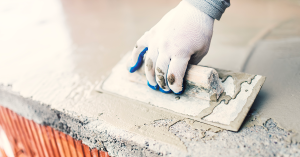The Importance of Water Waterproofing
Waterproofing is a crucial aspect of maintaining the structural integrity of a building. It protects against water damage, mold, and other issues that can arise from water infiltration. Whether you are dealing with a new construction project or looking to enhance the waterproofing of an existing structure, timing plays a significant role in the effectiveness of the waterproofing process.
Understanding the Factors
Before delving into the best time for water waterproofing, it’s essential to understand the factors that contribute to the need for this protective measure. Factors such as weather conditions, the type of construction material used, and the geographical location of the building can all impact the susceptibility to water damage.

1. Weather Conditions
One of the primary considerations when determining the best time for water waterproofing is the prevailing weather conditions. Ideally, you want to undertake waterproofing when the weather is dry. Applying waterproofing materials during rainy or humid conditions may hinder the effectiveness of the products and compromise the adhesion to the surfaces.
Conducting waterproofing during dry weather allows the materials to cure properly and form a strong, impermeable barrier against water intrusion. Additionally, working in dry conditions ensures that the surfaces to be waterproofed are free from moisture, promoting better adherence of the waterproofing agents.
2. Construction Material
The type of construction material used in a building also influences the timing of waterproofing. Different materials have varying degrees of susceptibility to water damage. For example, concrete structures may require waterproofing at different intervals than buildings constructed with wood or metal.
It’s essential to consult with construction experts or waterproofing professionals to determine the specific needs of your building based on its construction material. Some materials may benefit from early waterproofing as a preventive measure, while others may require periodic maintenance to ensure ongoing protection.
3. Geographical Location
The geographical location of a building plays a critical role in the exposure to weather elements. Areas with high rainfall or prone to flooding may require more frequent and robust waterproofing measures. Understanding the climate of the region and its impact on the building is vital for developing an effective waterproofing strategy.
When is the Best Time?
Considering the factors mentioned, the best time to undertake water waterproofing is typically during the dry season. This ensures optimal conditions for the application of waterproofing materials and allows for thorough preparation of the surfaces.
For new construction projects, incorporating waterproofing measures during the initial phases is advisable. This proactive approach can prevent potential water damage before it occurs, saving both time and money in the long run. For a sydney based waterproofing specialist see here.
For existing structures, scheduling waterproofing during dry weather is crucial. It allows for the inspection and repair of any existing water damage before applying new waterproofing materials. This comprehensive approach ensures that the building is well-protected against future water infiltration.
Conclusion
Waterproofing is a fundamental aspect of building maintenance and construction. Knowing the best time to undertake waterproofing can significantly impact its effectiveness. By considering weather conditions, construction material, and geographical location, you can develop a strategic waterproofing plan that ensures long-term protection against water damage.

